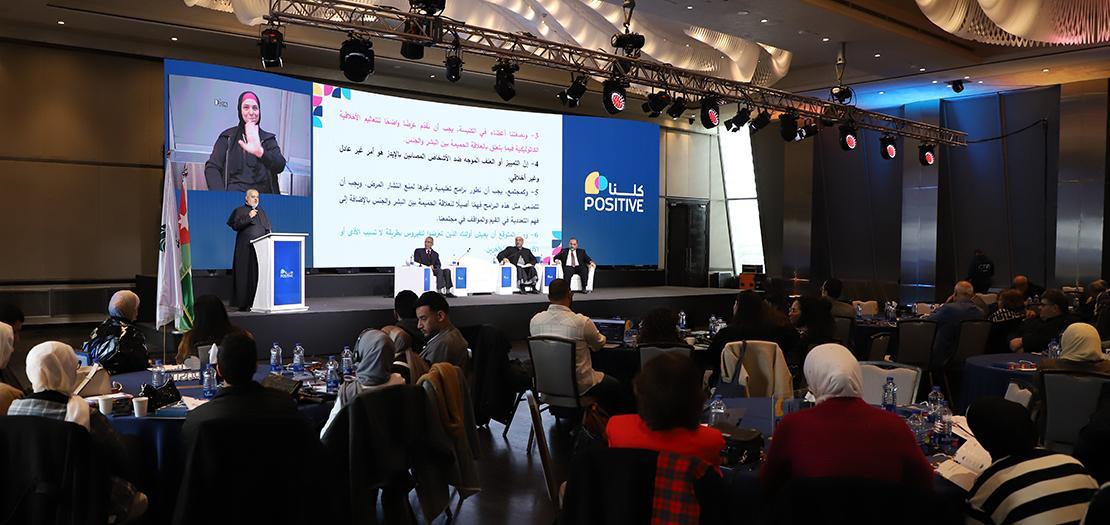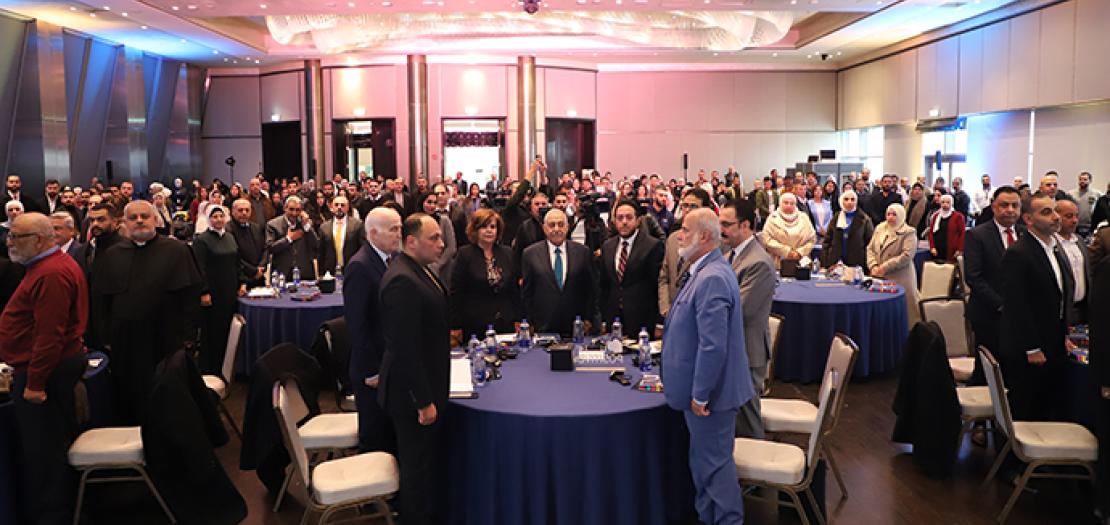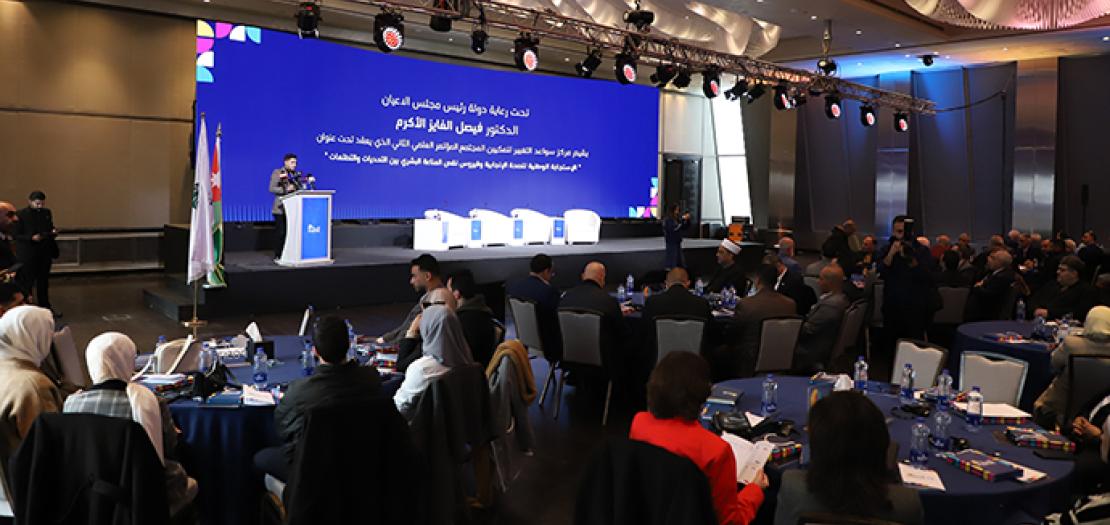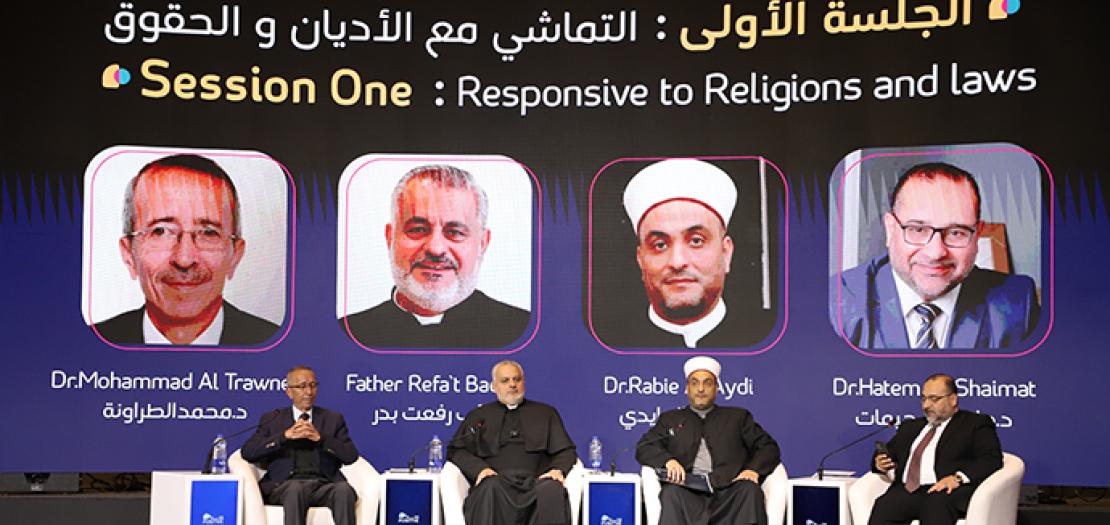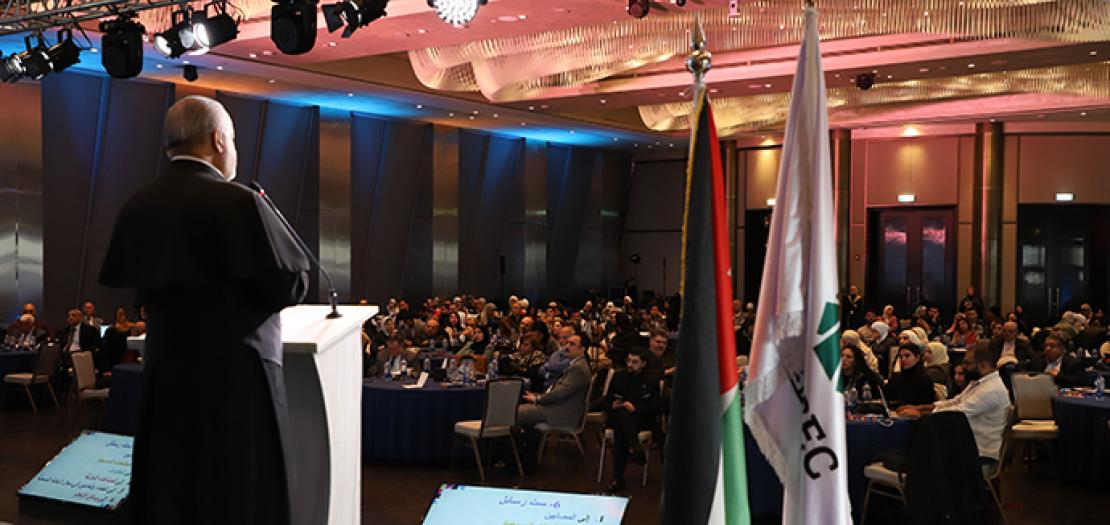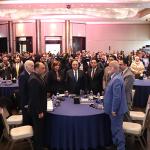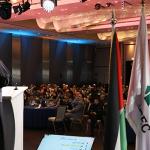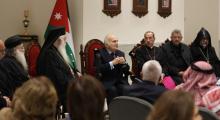Issued by the Catholic Center for Studies and Media - Jordan. Editor-in-chief Fr. Rif'at Bader - موقع أبونا abouna.org
The "Second National Conference on human immunodeficiency virus' (HIV) impact on Reproductive and Sexual Health" kicked off on Tuesday, November 26, 2024. It was opened by Head of the Health, Environment and Population Committee at the Senate Dr. Yassin Al-Husban on behalf of the President of the Senate Faisal Al-Fayez.
During the conference, two-day specialized scientific session were held with the participation of international and local experts who discussed a number of issues related to reproductive health, HIV, and modern methodologies in prevention of diseases and treatment with the aim of enhancing cooperation between partners to achieve progress in prevention and treatment, in promoting awareness about reproductive and sexual health, as well as improving services, and reducing discrimination and stigma.
During the first session titled, "Conformity with Religions and Rights", Fr. Dr. Rif'at Bader, director of the Catholic Center for Studies and Media in Jordan presented an intervention that focused on "the Christian perspective on HIV: Awareness of the disease and support for those infected".
Fr. Bader pointed out that the Church takes the Holy Bible and its moral teachings as a starting point in its dealings with HIV or AIDS. However, this does not mean that people infected may be "condemned", discriminated against, or be subjected to a social stigma. At a time when the Church and its moral teachings call on the believers to live a life full of morality, it calls on the other hand for forgiveness, as well as preaches love and mercy, and rather strives to support people infected with HIV.
Fr. Bader stressed that stigma contradicts the essence of Christian life represented in the commandment of love which states: “Love the Lord your God with all your heart, and with all your soul, and with all your strength, and with all your mind; and love your neighbor as yourself”. (Luke 10:27) Lord Christ sympathized with the marginalized and the outcasts in His society including the lepers, the poor, the sick, and the tax collectors. He also preached love for the hungry, the prisoners, and the sick as a practical way to love the Almighty God.
He pointed out that the Catholic Church has been on the front lines of this disease by serving as a "field hospital". Furthermore, statistics indicate that the Catholic Church is the largest private provider of care for AIDS patients, as various Catholic organizations provide more than a quarter of the treatment provided worldwide to these patients.
He continued that that the Vatican has established several institutions to provide pastoral services to health workers, in order to demonstrate the Church's concern for patients and to spread the spiritual and moral teachings of the disease in addition to highlight the concept of human suffering. The Catholic Church has also declared Saint Louis Gonzaga to be the patron of AIDS patients and their caregivers. This is due to the fact that even if we do not agree with someone's religious, intellectual, or social lifestyle, this does not exempt us from practising mercy and compassion, as well as from being an instrument of God's love.
In this regard, Fr. Bader recalled some practical examples, especially the meeting of Pope John Paul II with people infected with AIDS during his apostolic visit to San Francisco, USA, in September 1987, where he said in his address at the Basilica dedicated to Our Lady of Sorrows: "God loves you all, without distinction, without limit. He loves those of you who are sick, those who are suffering from AIDS and AIDS-related complex. He loves the relatives and friends of the sick and those who care for them. He loves us all with an unconditional and everlasting love."
Fr. Bader also noted that, around the same time, Mother Teresa began opening hospitals to care for AIDS patients by providing a service that few people at the time were willing to do. Furthermore, when Pope Francis was archbishop of Buenos Aires, Argentina, he washed the feet of 12 AIDS patients on Holy Thursday in 2001. On the sidelines of his presidency of World Youth Day 2019 in Panama, His Holiness the Pope met with people infected by this disease, and in his speech he emphasized the role of the Church as a “sign of God’s mercy and concrete compassion,” while criticizing “the indifference that kills,” and the fear of others because of “impurity, contempt, or social disgust.”
.
Father Bader drew attention to the fact that the Catholic Church views HIV as a disease to which society must respond in a manner consistent with the best available medical and scientific information, while demonstrating a responsibility to show solidarity with those exposed to it or suffering from this disease, as well as to communicate with them compassionately, and to provide spiritual care, medical and social services, in addition to support to their families and friends.
On the other hand, Fr. Bader stressed that the Church is committed to providing a clear presentation of moral teachings regarding sex. While it makes clear that discrimination or violence directed against people infected with AIDS is unfair and immoral, it calls for the development of educational programs to forestall the spread of the disease, including a genuine understanding of the intimate relationship among humans. It also expects those who have been infected by the virus--whether acquired through transfusion of infected blood, sexual intercourse, or drug addiction--must not cause harm to others.
Fr. Bader concluded his intervention by presenting six messages. The first one was addressed to those infected, where stress was made on individual’s responsibility towards oneself and towards one's community. The second message was addressed to Christian communities so as to promote understanding of the Christian perspective of the Sacrament of Marriage based on love, fidelity, and faith, so that pastoral efforts may be exerted to consolidate family stability and to raise children with a correct understanding of sexual behavior in its capacity as “a gift from God” and a living sign of commitment within the framework of the institution of marriage so that the Church may remain a haven for those infected and welcoming them in its capacity as an image of compassionate and merciful Lord Jesus Christ.
The third message was addressed to governments so that they may promote the public health of their peoples on the bases of responsibility, solidarity and justice so that efforts can continue to prevent the spread of this virus. Fr. Bader addressed his fourth message to pharmaceutical industries so that they can facilitate access to medicines, which are still sometimes expensive and exclusive to a group of people. The fifth message was addressed to scientists and healthcare workers so that they may renew their efforts to produce medicines capable of eliminating this disease.
The sixth and final message was addressed by the director of the Catholic Center for Studies and Media to media outlets, by providing the public with transparent, frank, and honest information about this scourge and ways to prevent it, as well as to help combat all forms of social stigma by educating the public, in order that this disease may be viewed as a social problem that can be dealt with when people change their biases, attitudes, lifestyles, and fears.


